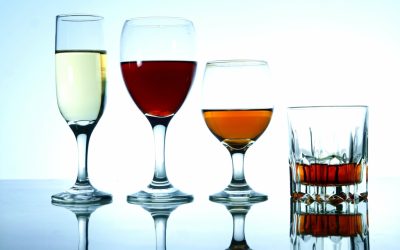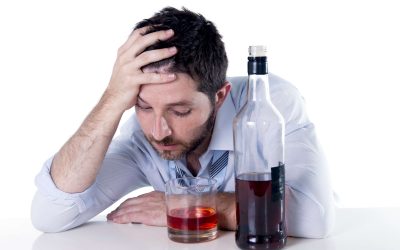While a drink might make you feel drowsy and help you fall asleep faster, this is a bit of a trick. Alcohol is a central nervous system depressant, but Oxford House as your body processes it, the sedative effect wears off. This rebound effect disrupts your sleep patterns later in the night, specifically cutting into your deep sleep. This is why you might feel physically worn out, groggy, or even a bit sick after drinking, no matter how long you were in bed. Anyone who has experienced a restless night after a few drinks can attest to alcohol’s disruptive effect on sleep.
The Role of Exercise in Circadian Rhythm Regulation
- Your body still has to metabolize it, which can disrupt your natural sleep cycle later in the night, particularly the deep, restorative stages you need to feel truly rested.
- Insomnia and other sleep disturbances are commonly observed in individuals with depression, and alcohol use can exacerbate these symptoms.
- Alcohol can reduce the amount of Rapid Eye Movement (REM) sleep you have at night.
- Some people feel that drinking alcohol before bed helps them doze off better.
Furthermore, alcohol consumption can lead to a drop in blood sugar levels during sleep. This hypoglycemic state can trigger the release of stress hormones like cortisol and adrenaline, which can wake you up and make it hard to fall back asleep. This disruption has profound implications for sleep quality and next-day functioning. When you go to bed with alcohol in your system, you’re likely to experience more deep sleep and less REM sleep than usual in the first half of the night.

Design Update – Liquid Glass

As alcohol is digested, it’s absorbed into the bloodstream and carried into every organ. The body circulates blood in just 90 seconds, so you start to feel the effects of alcohol fairly quickly (cue the drowsiness!). Your blood alcohol concentration (BAC) starts to rise, but just how quickly that happens depends on many things, like whether you’ve had a big meal, how much you’ve had to drink, and certain genetic factors.
- If you drink alcohol at night and have trouble falling or staying asleep, you might wonder how long you should wait between your last drink and going to bed so your sleep isn’t impacted.
- The less REM sleep you get, the lower your sleep quality, which means sleeping for shorter periods of time and waking up throughout the night.
- The interaction of the circadian alerting signal and the homeostatic sleep drive in the regulation of sleep-wakefulness is described.
- In the second half of thenight, sleep is disrupted, with increased wakefulness and/or stage 1 sleep.
Why does drinking alcohol affect your sleep?
If you’re at a party, you could try opting for a soft drink or glass of water between alcoholic drinks, which will help keep you hydrated and mean you drink less alcohol over the night. Still, it’s worth noting that we all metabolize alcohol at slightly different rates, depending on factors like age, body weight, liver health, and how much food is in your stomach, so you may have to stop even earlier. Everyone has a personal threshold where alcohol starts substantially affecting sleep. Whether it’s three drinks or one, knowing what your tipping point is will help you make more conscious decisions.
Long-Term Effects of Alcohol on Sleep
Frontal (but not posterior) N550 and P900 amplitudes were smallerin alcoholics than controls and smaller in men than women, but the sex difference was notrelated to diagnosis. Latencies of N550 and P900 did not differ as a function of diagnosisor sex. Alcohol can make you feel sleepy because it’s a central nervous system depressant, meaning it slows down brain activity, which can lead to drowsiness. If you’re having sleep-related problems, consider cutting back or giving up alcohol. “I’ve had many patients who came back to me after curtailing alcohol use entirely and their sleep disorders resolved,” shares Dr. Foldvary-Schaefer. The simplest way to keep alcohol from interfering with your sleep is to just not drink.
Eat something substantial before or while drinking
The more you drink, the more of a sedative insomnia after stopping drinking effect alcohol has and the more withdrawal effects you will feel. For people with sleep apnea or even mild snoring, alcohol can make things worse. Alcohol relaxes the muscles in the throat, which increases the likelihood of airway obstruction. This can lead to louder snoring or more severe sleep apnea episodes, further disrupting your sleep and possibly affecting your partner’s rest, too.
Alcohol and the Sleeping Brain
- This disruption affects important cognitive functions linked to mental health, such as emotional processing, creativity, and memory consolidation, particularly relevant for those invested in mental wellness and journaling.
- Combining alcohol with sedative medications can be dangerous or even fatal as it could lead to hypoventilation or not being able to breathe deeply at night.
- This combination of alcohol-induced night sweats and sleeping hot can make it nearly impossible to get the quality rest your body needs.
- That said, if you regularly drink during the evening, there may always be some compromise on your REM.
- Discover how caffeine affects your brain’s criticality during sleep, potentially impacting memory consolidation and cognitive recovery.
During relaxed wakefulness (i.e., when a person is awake but has his or her eyes closed and is relaxed), the EEG is characterized by a pattern of alpha waves with a frequency of 8 to 12 Hz and an amplitude of 20 to 40 microvolts. EOG readings show slow, rolling movements at the transition https://app.chaletblb.com/uw-madison-center-studies-psychedelics-to-treat/ to NREM sleep. The following paragraphs describe how these measurements are used to distinguish different sleep states and sleep stages.

